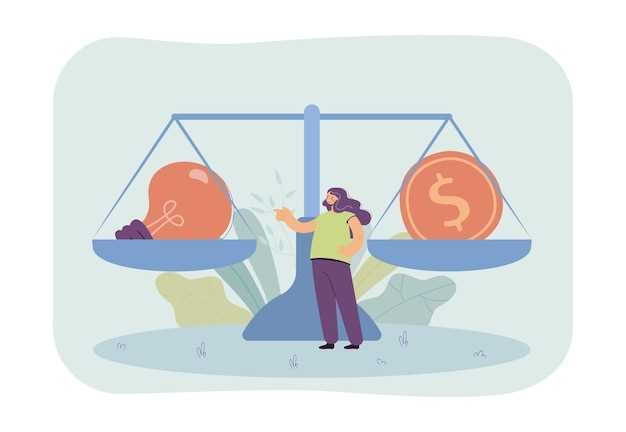
In today’s rapidly evolving labor landscape, a new paradigm has emerged, transforming the way we work and challenging traditional notions of employment. The rise of the gig economy has brought about a fundamental shift in the relationship between workers and employers, with a growing number of individuals embracing flexible, on-demand work arrangements. However, this newfound freedom and flexibility often come at a cost, as workers in the gig economy face unique challenges and vulnerabilities.
As the gig economy continues to expand, it is imperative that we address the pressing issue of worker rights and ensure fair treatment for all individuals engaged in this alternative form of employment. The gig economy encompasses a wide range of industries and occupations, from ride-hailing services to freelance writing, and it is crucial that we establish a comprehensive framework that protects the rights and interests of these workers.
Empowering workers in the gig economy requires a multifaceted approach that encompasses legal protections, social support systems, and collective bargaining mechanisms. By recognizing the inherent value and contributions of gig workers, we can foster an environment that promotes fairness, dignity, and respect. This article explores the various dimensions of worker rights in the gig economy and highlights the importance of creating a level playing field for all participants.
Understanding the Gig Economy: A New Era of Work
In today’s rapidly evolving job market, a new phenomenon has emerged, reshaping the way people work and earn a living. This article aims to provide an insightful understanding of the gig economy, a dynamic and flexible labor market that has gained significant traction in recent years. By exploring the key characteristics and implications of this new era of work, we can gain valuable insights into the changing nature of employment and its impact on workers.
The Rise of Independent Work
One of the defining features of the gig economy is the rise of independent work. Traditional employment models, characterized by long-term contracts and employer-employee relationships, are being replaced by short-term, project-based engagements. Individuals now have the opportunity to work on a freelance basis, taking on gigs or tasks that align with their skills and interests. This shift towards independent work offers greater flexibility and autonomy, allowing workers to choose when, where, and how they work.
Challenges and Opportunities
While the gig economy presents numerous opportunities for workers, it also poses unique challenges. Without the traditional benefits and protections associated with traditional employment, gig workers often face uncertainty regarding income stability, access to healthcare, and retirement savings. Additionally, the lack of collective bargaining power and limited legal protections can leave gig workers vulnerable to exploitation and unfair treatment.
However, it is important to recognize that the gig economy also offers opportunities for individuals to pursue their passions, develop new skills, and create their own businesses. The gig economy has opened up avenues for entrepreneurship and innovation, enabling workers to monetize their talents and find alternative sources of income.
- Flexibility and Work-Life Balance: Gig work allows individuals to have greater control over their schedules, enabling them to balance work with personal commitments and responsibilities.
- Access to a Global Marketplace: Through digital platforms, gig workers can connect with clients and opportunities from around the world, expanding their reach and potential customer base.
- Skills Development and Learning: Engaging in diverse gig projects can provide workers with the opportunity to acquire new skills, gain valuable experience, and continuously learn and grow professionally.
As the gig economy continues to evolve, it is crucial to strike a balance between the benefits it offers and the need to ensure fair treatment and protection for workers. By understanding the gig economy and its implications, policymakers, businesses, and workers themselves can work towards creating a more inclusive and equitable future of work.
The Challenges Faced by Independent Contractors

Gig workers, also known as independent contractors, encounter a range of difficulties in their work. These challenges arise from the nature of their employment, which is characterized by flexibility and autonomy. However, this flexibility often comes at the expense of stability and security.
1. Income Inconsistency
One of the primary challenges faced by gig workers is the inconsistency of their income. Unlike traditional employees who receive a fixed salary, gig workers’ earnings can vary significantly from week to week or month to month. This unpredictability makes it difficult for them to plan their finances and can lead to financial instability.
2. Lack of Benefits and Protections
Gig workers often do not have access to the same benefits and protections as traditional employees. They are typically not entitled to health insurance, retirement plans, paid time off, or other benefits provided by employers. This lack of benefits leaves gig workers vulnerable to financial hardships in case of illness, injury, or other unforeseen circumstances.
| Challenges | Impact |
|---|---|
| Income Inconsistency | Financial instability and difficulty in planning |
| Lack of Benefits and Protections | Vulnerability to financial hardships and lack of security |
The Importance of Equitable Compensation and Benefits
One crucial aspect of ensuring fairness in the gig economy is the provision of equitable compensation and benefits to workers. Adequate remuneration and comprehensive benefits play a vital role in promoting a just and sustainable work environment.
Equitable compensation refers to the fair and proportional payment that workers receive for their services. It encompasses not only the base wage or fee but also factors such as overtime pay, bonuses, and incentives. Fair compensation recognizes the value and effort put forth by gig economy workers, ensuring they are adequately rewarded for their contributions.
Furthermore, offering comprehensive benefits is essential for safeguarding the well-being and security of gig economy workers. These benefits may include access to healthcare, retirement plans, paid time off, and insurance coverage. By providing such benefits, employers demonstrate their commitment to the overall welfare of their workers, fostering a sense of loyalty and trust.
Equitable compensation and benefits are not only crucial for the financial stability of gig economy workers but also for their overall quality of life. Fair pay allows individuals to meet their basic needs, support their families, and plan for the future. Additionally, comprehensive benefits provide a safety net that protects workers from unforeseen circumstances and ensures their long-term security.
Moreover, fair compensation and benefits contribute to a more inclusive and sustainable gig economy. When workers are fairly compensated, they are more likely to be motivated, productive, and satisfied with their work. This, in turn, leads to higher job retention rates and improved overall performance within the gig economy.
In conclusion, the importance of equitable compensation and benefits cannot be overstated in the context of the gig economy. By ensuring fair pay and comprehensive benefits, employers can create a more just and sustainable work environment, promoting the well-being and rights of gig economy workers.
Ensuring Safety and Health in the Freelance Workforce
In today’s dynamic and flexible work environment, where individuals engage in freelance work through digital platforms, it is crucial to prioritize the safety and health of workers. The gig economy, characterized by its diverse range of independent contractors, requires a comprehensive approach to ensure the well-being of those involved.
Promoting a Culture of Safety
Creating a culture of safety is essential in the gig economy to protect workers from potential hazards and risks. Companies operating in this sector should prioritize safety training and education, ensuring that freelancers are equipped with the necessary knowledge and skills to identify and mitigate potential dangers. By fostering a culture of safety, both platform providers and freelancers can work together to minimize accidents and injuries.
Addressing Health Concerns

Health concerns are a significant aspect of ensuring the well-being of gig economy workers. Freelancers often face unique challenges, such as irregular working hours, lack of access to healthcare benefits, and increased stress levels. It is crucial for platform providers to address these concerns by offering resources and support systems that promote physical and mental well-being. This can include providing access to affordable healthcare options, offering mental health resources, and implementing policies that promote work-life balance.
Furthermore, gig economy workers should be encouraged to prioritize self-care and engage in healthy practices. Regular breaks, exercise, and maintaining a healthy work-life balance can contribute to their overall well-being. By addressing health concerns and promoting self-care, the gig economy can become a more sustainable and fulfilling work option for freelancers.
Addressing the Issue of Job Insecurity
In today’s ever-evolving work landscape, one pressing concern that needs to be addressed is the issue of job insecurity. This matter pertains to the lack of stability and certainty that workers face in their employment within the modern labor market. It encompasses the unease and anxiety experienced by individuals due to the absence of long-term contracts, benefits, and job security.
Job insecurity can manifest in various forms, such as precarious employment arrangements, including temporary contracts, freelance work, and gig-based jobs. These alternative work arrangements often lack the traditional protections and benefits associated with permanent employment, leaving workers vulnerable to income fluctuations, limited access to social security, and a lack of career progression opportunities.
To tackle the issue of job insecurity, it is crucial to implement policies and regulations that promote greater stability and protection for workers in the gig economy. This can be achieved through the establishment of fair labor standards, including minimum wage requirements, paid leave entitlements, and access to healthcare benefits. Additionally, fostering a supportive environment that encourages the formation of worker cooperatives and unions can empower gig workers to collectively negotiate for better working conditions and job security.
Furthermore, technological advancements and digital platforms that facilitate gig work should be leveraged to create mechanisms for transparency and accountability. Implementing rating systems and feedback mechanisms can help ensure that workers are treated fairly and that their rights are respected by employers. Additionally, establishing platforms that provide access to training and upskilling opportunities can enhance workers’ employability and reduce the risk of job insecurity.
Addressing the issue of job insecurity requires a multi-faceted approach that involves collaboration between policymakers, employers, and workers themselves. By recognizing the importance of job security and implementing measures to protect workers’ rights, we can create a more equitable and sustainable gig economy that benefits both individuals and society as a whole.
The Role of Government and Policy in Protecting Independent Contractors
In the ever-evolving landscape of the modern workforce, independent contractors, also known as gig workers, play a crucial role in various industries. As these workers navigate the gig economy, it becomes imperative for governments and policymakers to establish comprehensive measures that protect their rights and ensure fair treatment.
Government Intervention: Governments around the world have recognized the significance of gig workers and have started taking steps to address their unique challenges. By implementing appropriate policies and regulations, governments can create a framework that safeguards the interests of gig workers.
Legal Protections: One of the primary roles of government in protecting gig workers is to establish legal protections that guarantee their rights. This includes ensuring fair wages, providing access to benefits such as healthcare and retirement plans, and safeguarding against discrimination and exploitation.
Worker Classification: A crucial aspect of government involvement is determining the proper classification of gig workers. Clear guidelines and criteria need to be established to differentiate between independent contractors and traditional employees, as this classification directly impacts the rights and benefits available to gig workers.
Enforcement and Compliance: Government agencies play a vital role in enforcing labor laws and regulations to ensure that gig workers are treated fairly. By conducting regular inspections, investigating complaints, and imposing penalties on non-compliant companies, governments can create a deterrent against exploitation and unfair practices.
Collaboration with Platforms: Governments can also collaborate with gig economy platforms to establish industry-wide standards and best practices. By working together, governments and platforms can develop policies that protect gig workers while also fostering innovation and economic growth.
Education and Support: In addition to regulatory measures, governments can provide education and support programs to empower gig workers. This can include resources on legal rights, financial management, and access to training and skill development opportunities, enabling gig workers to thrive in the ever-changing gig economy.
In conclusion, the role of government and policy in protecting gig workers is crucial for ensuring their fair treatment and safeguarding their rights. By implementing appropriate measures, governments can create a supportive environment that promotes the well-being and success of gig workers in the modern workforce.



